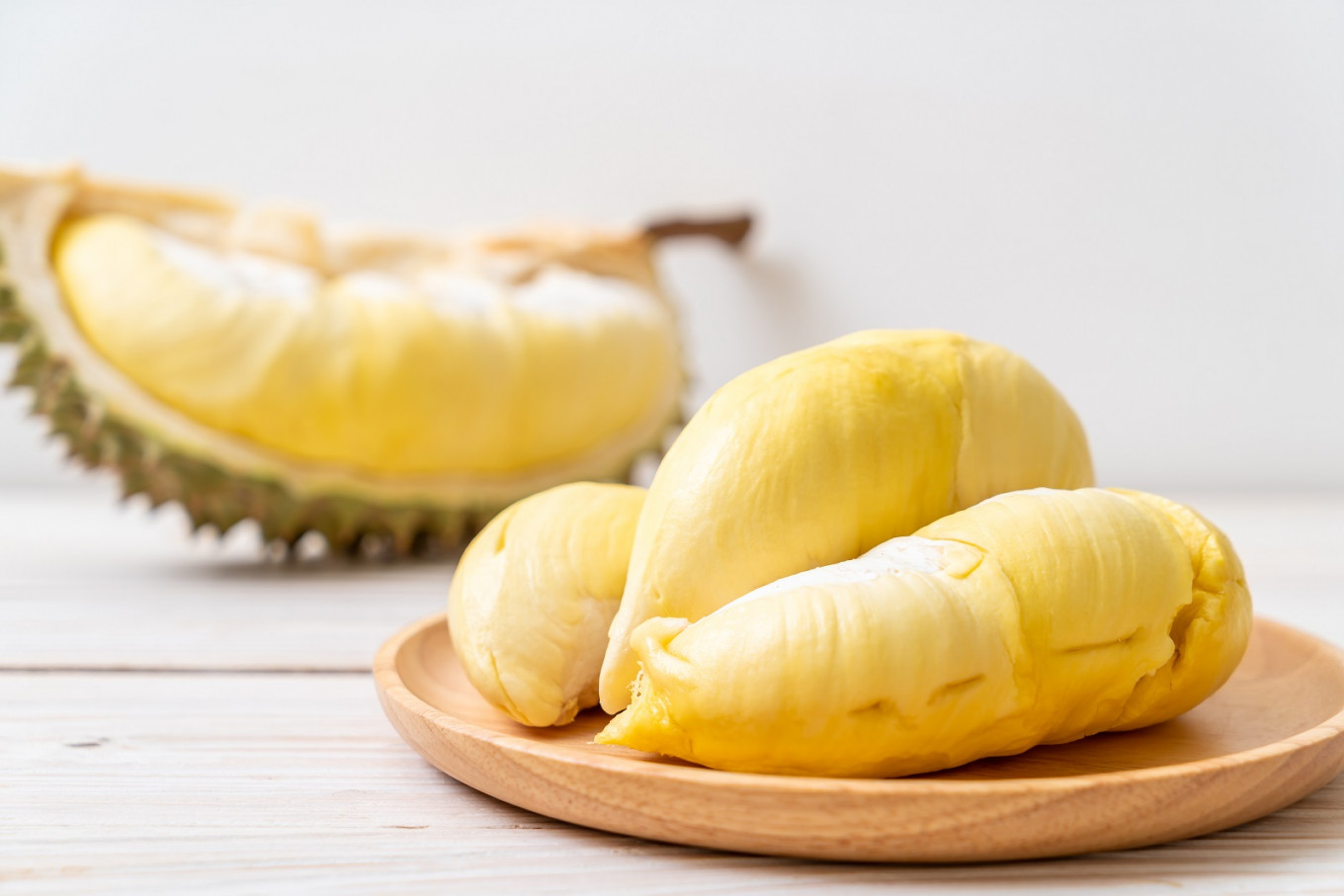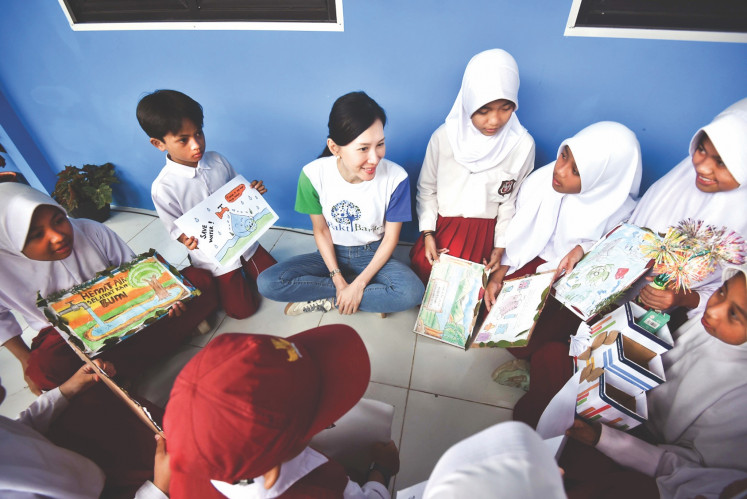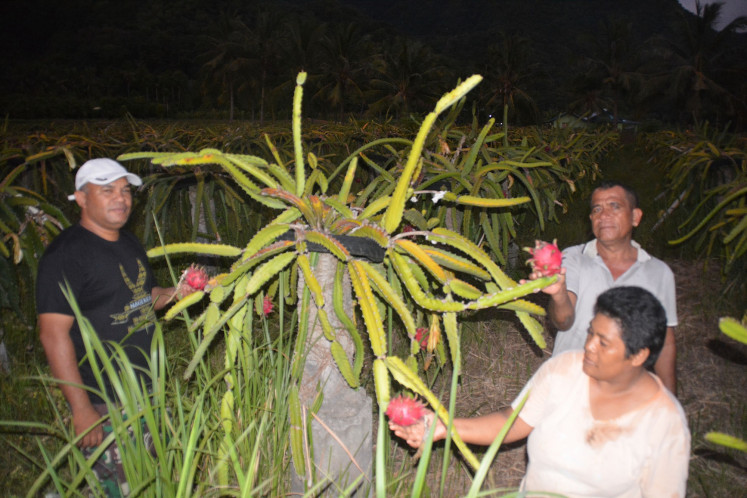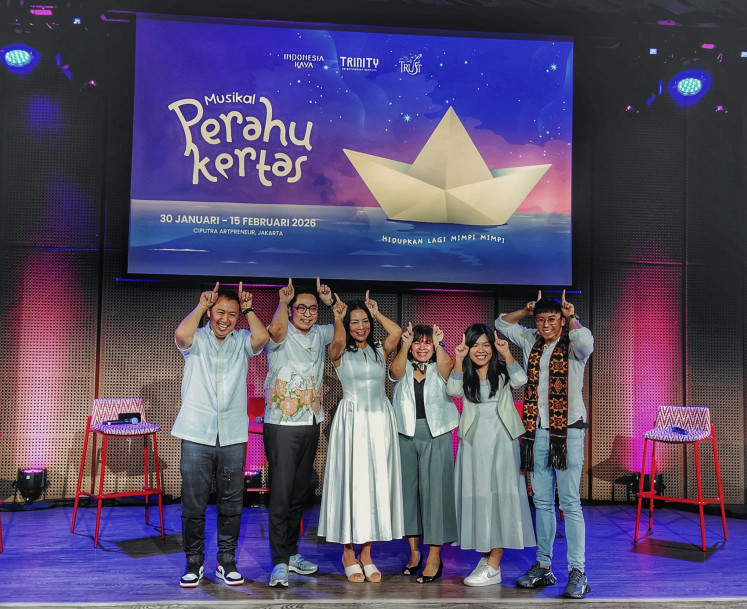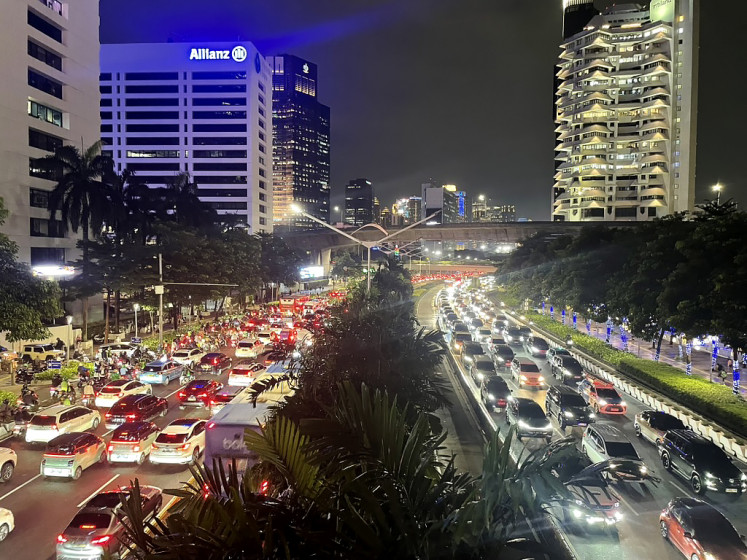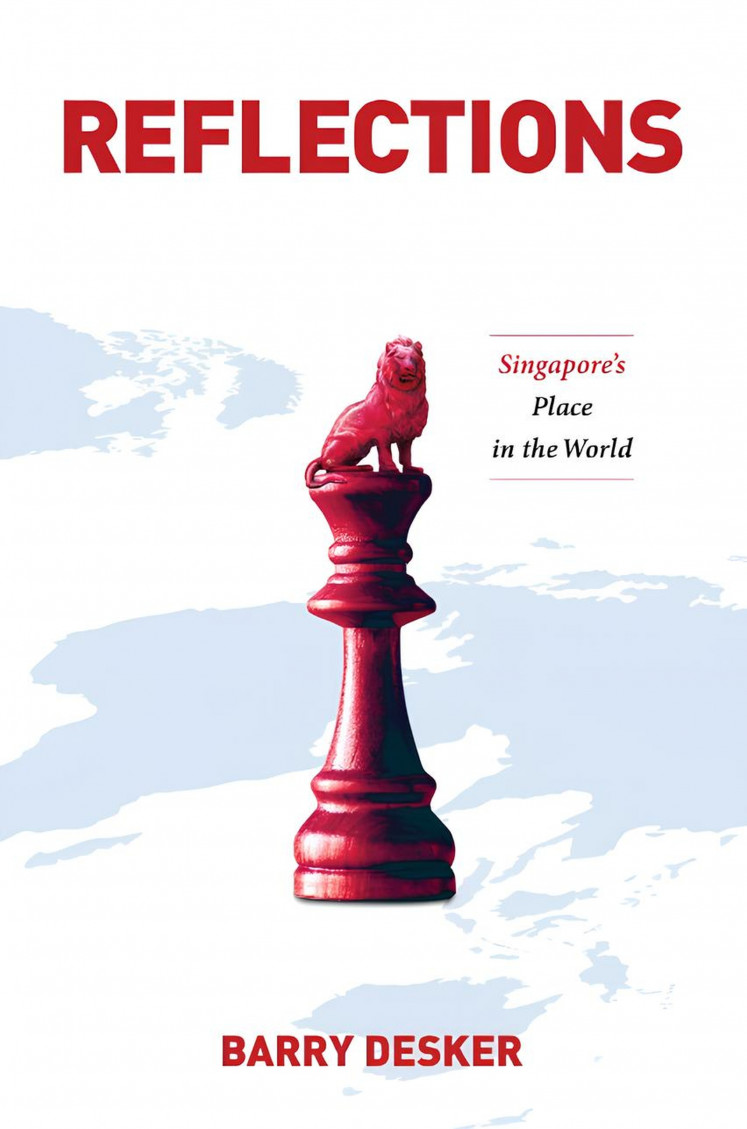Popular Reads
Top Results
Can't find what you're looking for?
View all search resultsPopular Reads
Top Results
Can't find what you're looking for?
View all search resultsEast Nusa Tenggara's Maupongo subdistrict produces tons of durian
Well-hidden at the foot of the Ebulobo volcano, Sawu valley in Maupongo subdistrict, Flores Island, has great potential for growing numerous horticultural products.
Change text size
Gift Premium Articles
to Anyone
W
ell-hidden at the foot of the Ebulobo volcano, Sawu valley in Maupongo subdistrict, Flores Island, has great potential for growing numerous horticultural products. The subdistrict is located in Nagekeo regency.
The hills south of Mount Ebulobo are well-known for their dense concentration of durian trees. Every year, farmers from 20 villages in Maupongo subdistrict harvest up to 10 tons of durian. The king of fruits from Maupongo is priced from Rp 10,000 (70 US cents) to Rp 50,000 each. Harvest time usually lasts from February to March.
Maupongo’s farmers sell their durian on the side of the transFlores highway in Gako, Boawae subdistrict. They also sell them in Ngada subdistrict, Ende regency, and Mbay, which is the capital of Nagekeo.
Residents of Maupongo subdistrict show off the durian they harvested. (JP/Markus Makur)
Residents of Maupongo subdistrict plant durian trees at home or in orchards. They also plant rambutan, avocado, banana and guava trees. At this time of the year, their hard work usually pays off. Some buyers go straight to the farmers to get Maupongo durian.
Come visit Maupongo and the surrounding villages yourself in February and March and breathe in the aroma of freshly harvested durian.
Bruno Sawetoyo, a farmer from Maupongo, told The Jakarta Post that he and other farmers in the village planted durian seeds that were donated by Ende regency’s Pancasila Farmers Association, which is run by the regency’s archdiocese.
Priest Rudolf Alfonsus Eka of the Joann Baptista Wolosambi Parish said the Catholic church empowered the farmers by donating the seeds.
Read also: Flores festival strives to promote Nagekeo regency's hidden destinations
The farmers plant the seeds at home and when they have an excess they seed the hills and valleys with them. The soil in Sawu valley happens to be very fertile and suitable for growing durian trees.
“My house is surrounded by durian trees and so are the other houses in Maupongo,” Sawetoyo told the Post last month. “Families in Maupongo subdistrict plant valuable commodities, therefore they are able to finance their children’s education.”
Farmers harvest dragon fruit in Maupongo subdistrict, Nagekeo regency, Flores, East Nusa Tenggara. (JP/Markus Makur)Sawetoyo explained that Maupongo also produced bananas that were sold in Java and Bali. The residents also grow rambutan, pink guavas, dragon fruit and nutmeg.
Rudolf said the church had set an example by growing durian trees and cloves on its grounds, which are harvested and then sold. He urged Nagekeo regency’s administration office to assist Maupongo farmers in finding markets and promoting local commodities at provincial and national level. (mut)

